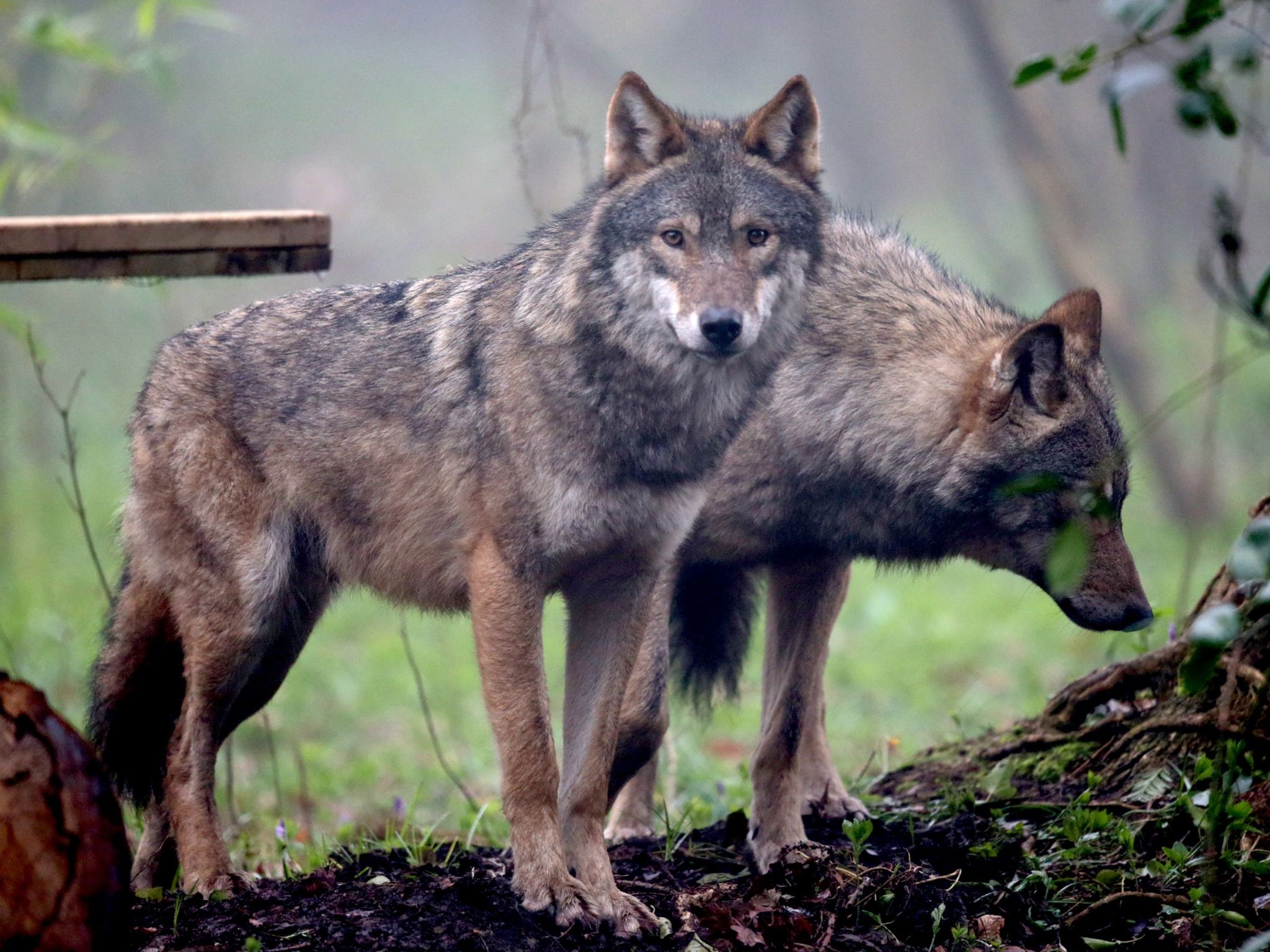Wolves are not 'egalitarians' when it comes to play fighting
Researchers had thought adult wolves would let puppies win sometimes to encourage them to play – they don't

Support truly
independent journalism
Our mission is to deliver unbiased, fact-based reporting that holds power to account and exposes the truth.
Whether $5 or $50, every contribution counts.
Support us to deliver journalism without an agenda.

Louise Thomas
Editor
Wolves do not appear to adopt an “egalitarian” approach when playing with young pups, refusing to let them win, according to a new study.
Researchers speculated that dominant wolves would allow younger, weaker members of their group to ‘win’ about half the time.
However, they found the reverse was true – puppies would deliberately let the adult win.
Jennifer Essler, of the Wolf Science Centre in Austria, who led the research, said: “The study presents the first evidence that wolf puppies do not show egalitarian play styles, and adult wolves do not appear to exhibit self-handicapping behaviours to engage the puppies in play.
“Thus, it does not appear that the retained levels of… co-operation within wolves, compared to dogs, has selected for more egalitarian play styles.”
A paper published in the open-access journal PLOS ONE said the researchers had hypothesized that animals might follow a “50:50 rule” in order to encourage social play.
So instead of going all-out to win a play fight, the dominant animal would choose to adopt a “self-handicapping” technique to allow their rival to win.
However, they wrote in the paper: “Contrary to predictions based on the 50:50 rule, adult wolves did not facilitate play by exhibiting more self-handicapping and less offensive behaviours towards their partners than would be predicted by their dominance relationship.”
“In mixed pairs of one adult and one puppy, puppies engaged in significantly more self-handicapping behaviours, and significantly less offensive behaviours than their adult partners.”
Subscribe to Independent Premium to bookmark this article
Want to bookmark your favourite articles and stories to read or reference later? Start your Independent Premium subscription today.
Join our commenting forum
Join thought-provoking conversations, follow other Independent readers and see their replies
Comments